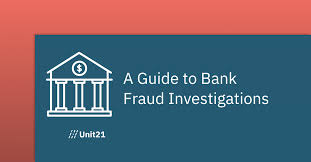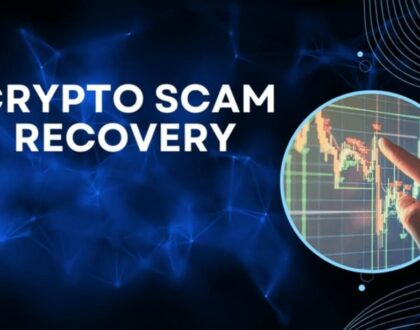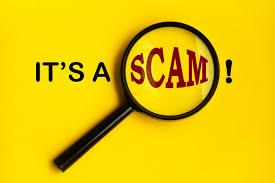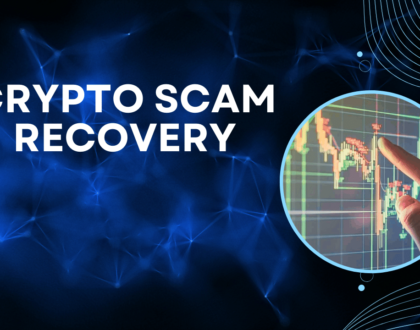
Do Banks report fraud to business
Do Banks report fraud to busines? An Insightful manual
Do Banks report fraud to business? Fraud is an unlucky fact that organizations should cope with, and banks play an essential function in identifying, preventing, and responding to fraudulent sports. Many commercial enterprise owners regularly marvel at whether or not banks file fraud against organizations and how they deal with suspicious activities. This text explores the obligations of banks regarding fraud, whether they refund fraudulent cash, how they document suspicious activities, and what reimbursement options are probably available to sufferers.
Do Banks report fraud to organizations?
Yes, banks do record fraud in groups. However, the manner is regularly complex and varies, depending on the type and scale of the fraudulent hobby. While a bank detects probably fraudulent transactions, it generally follows a hard and fast manner to ensure compliance with felony requirements and the protection of its customers.
Banks are legally obligated to reveal and record suspicious activities to the regulatory government, which includes the Monetary Crimes Enforcement Network (FinCEN) within the United States, under the Financial Institution Secrecy Act (BSA). Suppose a bank identifies a suspicious transaction that could involve fraud. In that case, it’ll usually notify the concerned enterprise, especially if the enterprise is the victim or its debts have been compromised. This notification allows the enterprise to take on-the-spot action to mitigate further losses.
However, the extent and speed of communication between banks and organizations can vary. Banks need to balance the need to guard customer statistics with the necessity of reporting fraud, which occasionally delays direct communication with affected businesses.
Does the bank Refund Fraud money?
One of the most pressing concerns for businesses affected by fraud is whether they can improve their misplaced funds. The solution to this question is not honest and depends on several elements, such as the kind of fraud, the financial institution’s regulations, and the situations surrounding the fraudulent pastime.
Unauthorized Transactions:
If a commercial enterprise notices unauthorized transactions on its account, it must file them to the bank. Most banks have guidelines to guard their clients from unauthorized transactions, and they may refund the stolen money if fraud is suggested directly. The bank will check out the declaration, and if it determines that the transactions were unauthorized, it’s probable to problem a reimbursement.
Negligence or Complicity:
In instances where fraud occurs due to negligence on the part of the business, including failing to shield sensitive information or ignoring security protocols, the bank won’t be obligated to refund the stolen cash. Similarly, if there is proof that someone within the enterprise became complicit in the fraud, the bank may deny a reimbursement.
Third partyFraud:
While a third birthday celebration commits fraud by impersonating a business or hacking into its debts, the final results rely upon the financial institution’s fraud safety guidelines. Some banks provide strong fraud protection measures and coverage, which could cover losses from third-celebration fraud. However, businesses must evaluate their financial institution’s rules and recollect additional fraud coverage to guard against such dangers.
Do Banks record Suspicious interest?
Banks are required by law to record suspicious activities that might indicate fraud or other criminal activity. This is usually completed by filing a Suspicious Activity record (SAR) with regulatory bodies. SARs are personal reviews that banks must document once they detect uncommon or suspicious transactions involving money laundering, fraud, or other unlawful activities.
For instance, if a financial institution notices a couple of large transactions that don’t match a business’s typical transaction styles or identifies attempts to tie money to offshore bills with no clear business motive, it can record a SAR. The financial institution might also contact the business to verify the legitimacy of these transactions.
Banks help protect organizations and economic devices from fraud by reporting suspicious activities. The reports enable regulatory authorities to research potential crook sports and take appropriate action. However, due to privacy legal guidelines, organizations might only be informed that a SAR has been filed on their behalf if it once affects their account.
What’s the responsibility of the bank for fraud?
Banks must protect their customers from fraud. This duty consists of:
Tracking accounts:
Banks are expected to display purchaser bills for unusual or suspicious activities that could indicate fraud. Advanced algorithms and synthetic intelligence systems are frequently used to detect anomalies in transaction styles that could suggest fraudulent behavior.
Safety features:
Banks are responsible for implementing robust safety features to prevent unauthorized access to money owed. These features include encryption, multi-factor authentication, and normal security audits to shield consumer facts.
Spark offmovement:
When fraud is detected, banks are liable for appearing quickly to decrease losses. This includes freezing debts, reversing unauthorized transactions while possible, and notifying affected companies directly.
Compliance with laws:
Banks should observe laws and regulations designed to prevent Fraud, including the Financial Institution Secrecy Act and the US PATRIOT Act. Those laws require banks to document suspicious activities and hold facts that could assist authorities in investigating and prosecuting fraudsters.
Do Banks make amends for fraud?
The reimbursement an enterprise can acquire for fraud depends on the precise situation and the financial institution’s policies. Commonly, banks are much more likely to compensate groups for fraud if:
• The business suggested the fraud right away. Quick reporting can also prevent unauthorized transactions and increase the probability of recovering lost finances.
• There has been no negligence on the part of the enterprise. If a business can show that it accompanied all security protocols and become now not negligent, the bank is much more likely to atone for the losses.
• The bank’s safety features failed. If fraud happens because of a failure within the financial institution’s safety structures, the financial institution might be responsible for the losses and compensate the business.
However, if the enterprise becomes negligent or does not report the fraud immediately, the bank may not be obligated to provide repayment. Corporations need to apprehend their bank’s fraud rules and take proactive steps to protect their debts.
Conclusion
Any business owner needs expertise in how banks document fraud to corporations and the extent of their responsibilities. While banks must protect their customers and report suspicious activities, companies must also preserve robust safety practices and promptly file any suspected fraud. By working collectively, banks and agencies can mitigate fraud risks and create a more secure economic environment.



